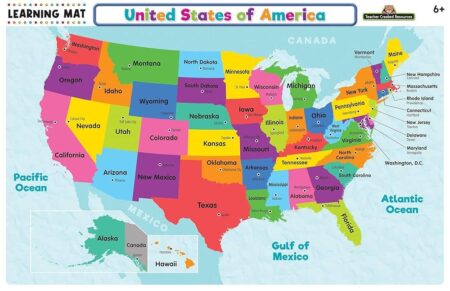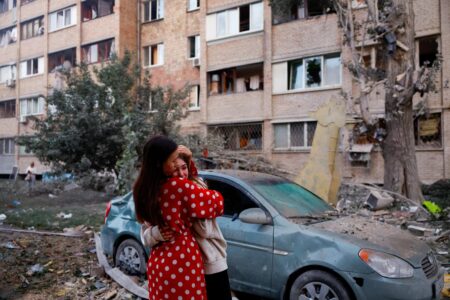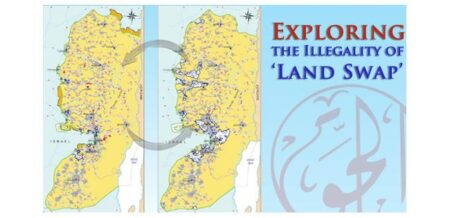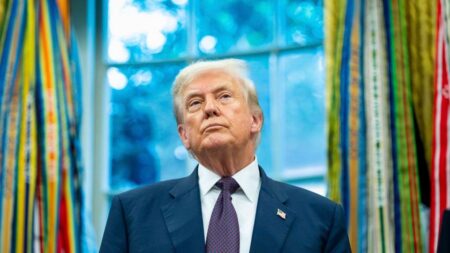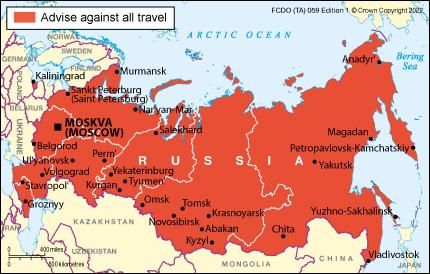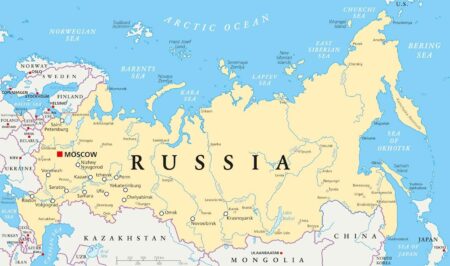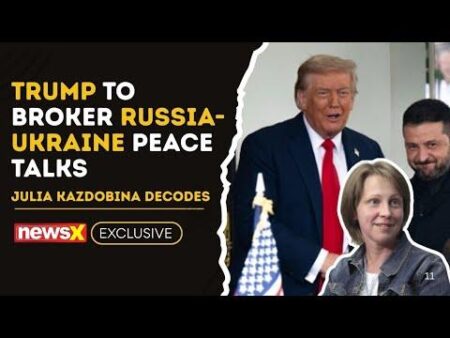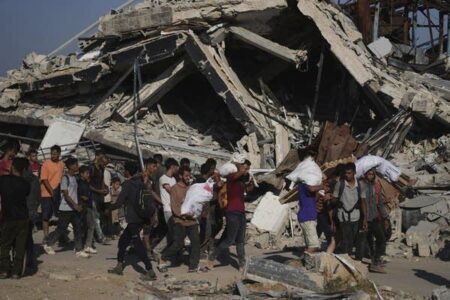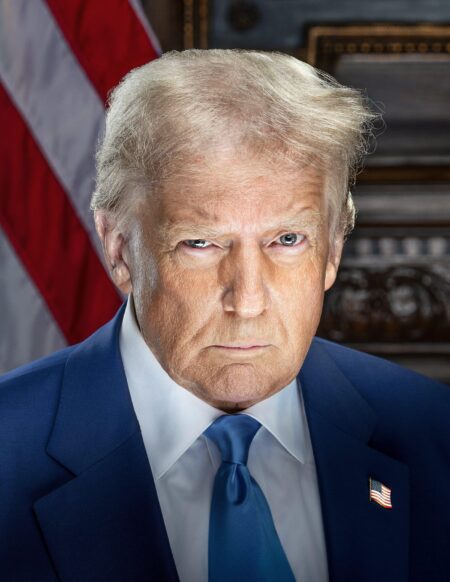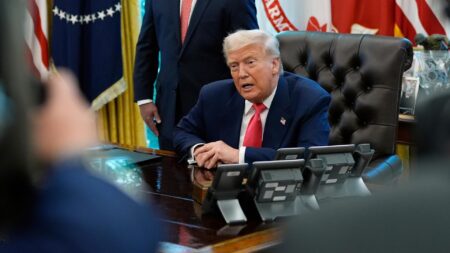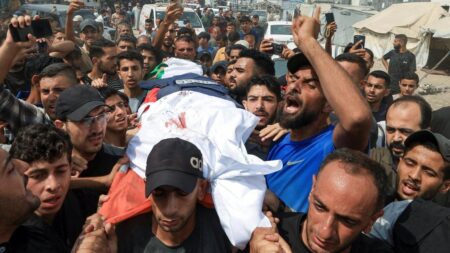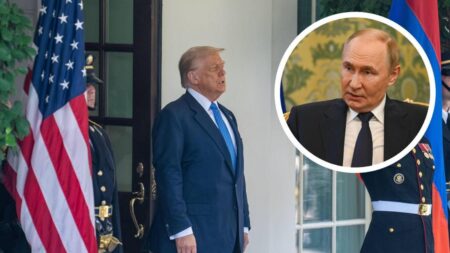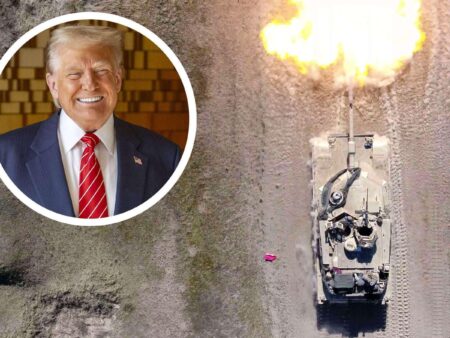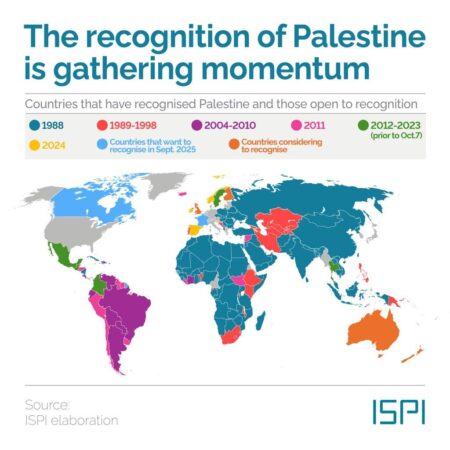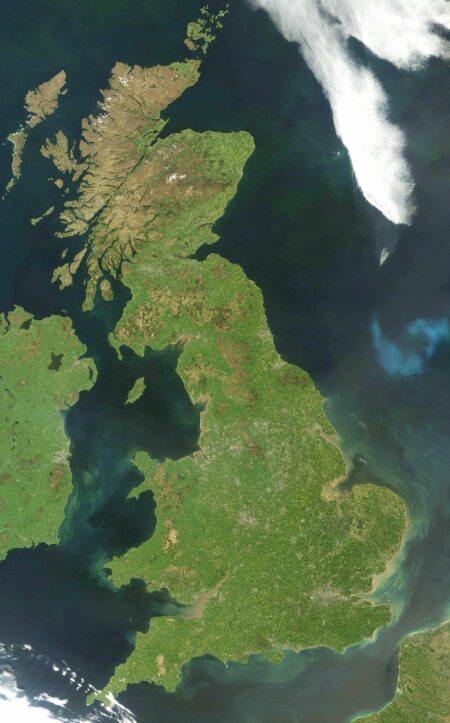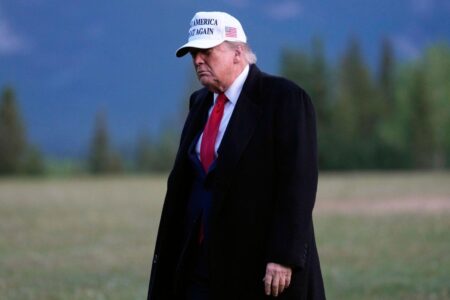Germany has taken a decisive step to support a France-led two-state solution to the Israel-Palestine conflict, Bloomberg News reports, citing Reuters. This bold initiative signals a renewed surge of European determination to secure lasting peace in the region
Browsing: conflict resolution
The U.S. Department of State has released groundbreaking documents from a historic meeting between Armenia and Azerbaijan, marking a bold step forward in the quest for peace and revitalized dialogue in this long-standing regional conflict
Europe is urgently exploring the creation of a Ukraine-Russia buffer zone-a daring last effort to halt the relentless conflict and underscore the critical need for a diplomatic breakthrough
Former President Trump boldly championed a controversial Ukraine peace plan centered on a provocative land swap with Russia. While the proposal ultimately unraveled, it highlighted the complex and delicate challenges of steering diplomacy through an active and volatile conflict
Former President Trump expressed his frustration after believing he had made significant progress in the Russia-Ukraine negotiations, only to see Russian President Putin suddenly retreat, sources told AP News
Russia accuses European leaders of obstructing peace efforts in Ukraine, while US envoy Vance pledges that America will relentlessly pursue a resolution, highlighting deep divisions over the war’s future
Russia’s top diplomat has confirmed that no meeting is on the horizon between President Putin and Ukrainian President Zelensky, underscoring ongoing tensions and stalled diplomatic efforts, The New York Times reports
Peace talks between Russia and Ukraine teeter on the edge as diplomatic efforts falter amid the unyielding conflict. Experts warn that real breakthroughs hinge on pivotal political shifts and a powerful wave of renewed international pressure
Prospects for a ceasefire in the Russia-Ukraine war remain uncertain as diplomatic efforts face stalled negotiations and ongoing clashes. International calls for dialogue intensify amid rising civilian casualties
Former President Donald Trump left the Alaska summit with Vladimir Putin empty-handed, failing to secure a deal to end the Ukraine war, AP News reports. The talks wrapped up without any breakthrough in resolving the conflict
Spain has taken a decisive step by backing a UN-led mission aimed at restoring stability to Gaza, Reuters reports. This bold commitment underscores Madrid’s unwavering dedication to promoting peace in a region marked by persistent conflict
Trump and Putin concluded their talks on Ukraine, highlighting significant strides made while narrowly missing a breakthrough. Both leaders emphasized the crucial role of ongoing dialogue amid the persistent challenges in reaching a final agreement
Behind Europe’s anguished statements on Gaza lies a gripping diplomatic dance, where leaders grapple with urgent humanitarian crises while skillfully balancing strategic alliances and striving to preserve regional stability amid the escalating conflict
Former US President Donald Trump has boldly vowed to champion the return of Ukrainian territory in his upcoming talks with Vladimir Putin. His declaration comes amid rising tensions over Russia’s ongoing invasion of Ukraine
The US has once again highlighted former President Donald Trump’s pivotal role in advancing peace between India and Pakistan, firmly reaffirming their stance amid ongoing regional tensions, NDTV reports
The Australian Embassy warmly welcomes the Thailand-Cambodia ceasefire, urging both nations to sustain peace and continue open dialogue for enduring regional stability. This breakthrough is celebrated as a hopeful and exciting step toward a brighter future
Britain and France’s potential recognition of Palestine is unlikely to spark fresh momentum for Middle East peace, analysts caution. Rather than easing tensions, this move might deepen divisions and add new challenges to the fragile diplomatic efforts amid ongoing Israeli-Palestinian conflicts
Britain has delivered a powerful warning: it may officially recognize a Palestinian state if Israel does not agree to a ceasefire in Gaza, intensifying pressure amid the escalating conflict, according to CNN. Tensions remain dangerously high as negotiations teeter on the edge
Former President Trump reportedly suggested handing Russian President Vladimir Putin a victory in Ukraine, aiming to bring the conflict to a quick close. However, Putin rejected the proposal, driven by broader strategic goals, according to the Atlantic Council
Former President Donald Trump has sharply accelerated the deadline for Russia to agree to a ceasefire, delivering a powerful warning of rapid repercussions if his terms are dismissed. This decisive action intensifies the pressure as the conflict continues to escalate


